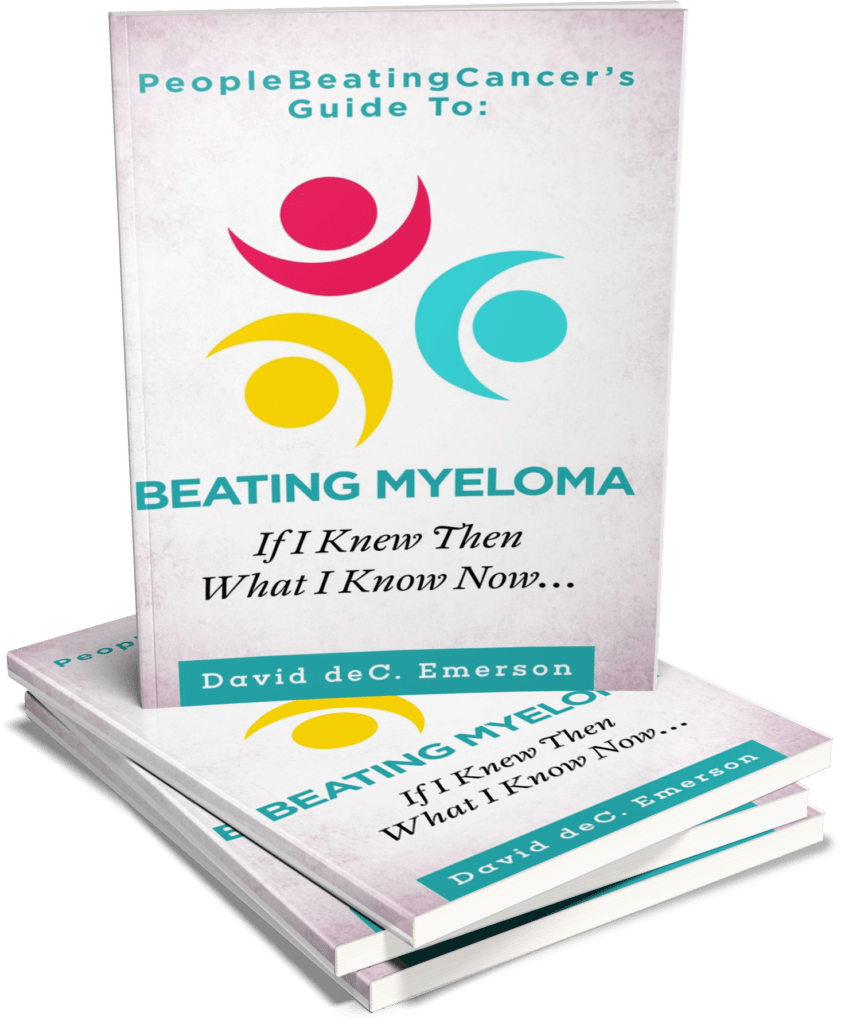In this era of increasingly holistic care, it has become clear that the mind-body therapy of spirituality/religious beliefs and practices are important to many myeloma patients and survivors.

“There are no atheists in fox holes” as the saying goes. Facing one’s mortality can make you search for meaning in life, think about how spirituality/religion effects you. While I’ve never been in a fox hole, I did face end-stage multiple myeloma. My oncologist did give me the bad news that “there is nothing more we can do for you…”
Boy was that a tense appointment. After almost four years of putting all my faith in my oncologists, (’94-’97) I walked away from that conversation vowing to take personal responsibility for my care and to look beyond conventional oncology.
Over the past 25 years while researching multiple myeloma (MM) – as I was learning about both cancer coping methods as well as actual myeloma therapies, I have researched peer-reviewed, research-based information citing that
- cancer patients who experience spirituality/religion experience a higher quality of life (QOL)
- and may experience longer overall survival (OS) than non-spiritual, non-religious cancer patients with the same diagnosis, stage, therapies, etc.
If you are not religious do you put too much “faith” in conventional therapies possibly distracting you from thinking about “the big picture” possibly limiting your quality of life?
Is it a zero-sum game? Does spirituality/religion mean that you don’t believe in chemoradiation?
Should conventional oncology encourage cancer patients to be more spiritual/religious? In other words, if spirituality is, in fact, a valuable immune-boosting that helps all of us find greater meaning in life, shouldn’t our oncologists say so? Shouldn’t oncology at least include spirituality in the induction therapy along with chemo?
I am both a Myeloma survivor and Myeloma cancer coach. Scroll down the page and ask me a question or make a comment. I will reply to you ASAP.
thank you.
David Emerson
- MM Survivor
- MM Cancer Coach
- Director PeopleBeatingCancer
Recommended Reading:
“The intersection between faith, science, and healing is still hazy for many practitioners, and some are uncomfortable bringing spiritual practice into the care paradigm. But in this era of increasingly holistic care, it has become clear that religious and spiritual beliefs and practices are important to many patients. This can be particularly pronounced in people facing a potentially terminal disease, such as cancer, where one’s own mortality suddenly becomes very real…
“Spirituality is recognized as a factor that contributes to health in many persons. The concept of spirituality is found in all cultures and societies. It is expressed in an individual’s search for ultimate meaning through participation in religion and/or belief in God, family, naturalism, rationalism, humanism, and the arts. All of these factors can influence how patients and health care professionals perceive health and illness and how they interact with one another..”
“Research has shown that religiosity and spirituality significantly contribute to psychosocial adjustment to cancer and its treatments. Religion offers hope to those suffering from cancer, and it has been found to have a positive effect on the quality of life of cancer patients. Numerous studies have found that religion and spirituality also provide effective coping mechanisms for patients as well as family caregivers. Research indicates that cancer patients who rely on spiritual and religious beliefs to cope with their illness are more likely to use an active coping style in which they accept their illness and try to deal with it in a positive and purposeful way. ..”
“Despite the difficulty in clearly defining and measuring spirituality, a growing literature describes its importance in oncology and survivorship. Religious/spiritual beliefs influence patients’ decision-making with respect to both complementary therapies and aggressive care at the end of life. Measures of spirituality and spiritual well-being correlate with quality of life in cancer patients, cancer survivors, and caregivers…”
“As a coping characteristic, hope is individualistic, and persons have various capacities for hoping and different approaches to maintaining hope. Personal hope is embedded in a broad social context. The way you hope develops within a particular family culture and within an historical framework and set of experiences…”




